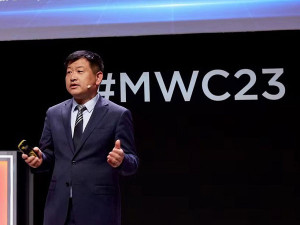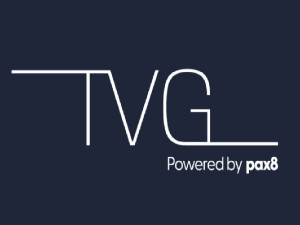The Gartner Magic Quadrant has been a highly influential metric in the technology sector for over ten years. As an ostensibly objective analysis of market competitors, the majority of businesses factor it into their decision-making, so its impact on the sector’s competitive landscape is evident.
However, reports from within the industry indicate that Gartner is considering shifting its evaluation criteria for Leader status in the Magic Quadrant (MQ) for Primary Storage. One point in particular has attracted the attention of international data storage providers, as Gartner is rumoured to be changing the terms to reflect more favourably on providers that have integrated with the three major US-based hyperscalers - Amazon Web Services (AWS), Microsoft Azure, and Google Cloud.
Large-scale cloud storage is increasingly essential, so it is understandable that this would be reflected by the MQ’s criteria. The concern is that the US-headquartered Gartner would effectively be advocating for its compatriots – three large hyperscalers that already have a major presence in many markets - at the expense of longstanding storage providers whose specialist knowledge and expertise have driven innovation and competition in the sector.
Leader status in the MQ is considered an accolade which reflects technological prowess, market insight, strategic innovation and consistent financial results. This recognition of course provides a significant boost to companies’ reputations and therefore typically to sales and partnerships. If Gartner amends its evaluation criteria to promote integration with US-headquartered hyperscalers, this could work against providers based in other regions.
How would Gartner’s changes affect storage providers?
The potential pivot towards integration with US hyperscalers could have significant ramifications – and it’s hard to argue that they would be universally positive. The change could disincentivise the competition between traditional storage providers that has long driven innovation in the sector, as Gartner would effectively signal to traditional storage providers that their specialist knowledge and customer-centric strategies are of less value than integration with US-headquartered hyperscalers – and by favouring the closed ecosystem of hyperscalers, Gartner could potentially create a home field advantage on what has thus far been a level playing field.
The requirement for global data storage providers to integrate with US-based hyperscalers is unlikely to be welcomed with open arms by international markets – in fact, the move will almost certainly make things more difficult for storage providers. Regulatory hurdles are inevitable, while issues that are endemic to particular markets could be overlooked if providers have less incentive to solve these problems creatively using localised, specialist knowledge. If the technology doesn’t work as effectively for the target market, this will reduce adoption rates in these markets. By prioritising integration with US-based hyperscalers, Gartner could put both overseas providers and markets at a disadvantage – and this idea is underlined by the idea that it will likely be easier for US-based providers to integrate with AWS, Azure, and Google Cloud.
By shifting the criteria for Leader status to favour US companies, Gartner runs the risk of appearing to embrace ‘America First’ protectionism – a move that could be perceived as arrogant in international markets, particularly given the increasing prevalence of data sovereignty requirements. There is a growing trend for governments to require that data is stored locally – whether for practical or political purposes – and this goes hand in hand with a reluctance to rely on closed ecosystems provided by overseas firms. Gartner would be unwise to assume that governments in regions such as Africa, the Middle East, and Latin America would be happy to rely on US-based firms for their data storage needs.
How will providers outside the US react?
However, the biggest issue for global markets remains innovation – simply put, there is a concern among global markets that US hyperscalers will assume that what works for them will work anywhere, whereas in reality creative solutions typically require local knowledge. The Latin American market has been a hotbed for data centre investment over the past year, with much of this driven by data storage providers who operate outside of the hyperscaler space. Brazil, Chile, Colombia and Mexico lead the way in terms of regional investment, and data storage innovation has largely been driven by local companies and traditional providers. Given that such companies have delivered significant investment to the region while hyperscalers are only beginning to launch projects in major markets such as Mexico and Brazil, Gartner’s proposals for integration with US hyperscalers may well meet with a tepid reception. Emerging markets have long been forced to find solutions to their own problems and have risen to this challenge – there would likely be little appetite for pivoting away from this approach and towards a US-led closed ecosystem.
Indeed, many industry watchers have raised concerns that Gartner’s re-evaluation of its criteria could stifle the innovation that data storage providers have brought to many emerging markets. In a recent article discussing Gartner’s proposals, Tony Moroney, Program Director for Digital Leadership at the Irish Management Institute, World Business Angels Investment Forum (WBAF) Senator for Ireland and Smart Cities Board Member, and Co-Founder, Digital Transformation Lab, cautions: “Traditional storage vendors have been the driving force behind significant technological advancements – pioneering developments in flash storage, data deduplication, and enterprise-grade data management. If the market tilts too heavily towards data storage integration with hyperscalers, we may see a decline in the diversity and pace of innovation.” Moroney notes that traditional storage providers could be edged out of the market, particularly if their offerings happen to be incompatible or redundant within the hyperscaler’s specific ecosystem, and that this would reduce the need for a diversity of solutions.
Nowhere is the need for market-specific innovation more pronounced than in Africa. Whether with traditional network buildouts, banking, or data storage, Africa presents unique challenges that have been addressed through local knowledge and creative thinking – and solutions that have worked in other markets typically do not apply. While Africa is currently witnessing a significant uptick in data centre investment, there are still many hurdles, such as ensuring a reliable power supply, which require an innovative, market-specific approach. There are numerous data storage companies that focus exclusively on the African market which are using their expertise to resolve the issues endemic to the region. Such providers perhaps won’t prioritise Leadership status in the MQ, but will nonetheless be unlikely to embrace a closed ecosystem stacked in favour of US-based hyperscalers when their markets demand blue-sky thinking.
Will Leadership status still matter?
If Gartner goes ahead with the suggested revisions to the criteria for Leadership in the Magic Quadrant, some storage providers will be largely unaffected, and some may lose a status that is of significant value to their business. The real change will be in what the status now signifies – if its criteria favour US-based hyperscalers, the MQ runs the risk of discouraging the competitive innovation that it has thus far helped to foster. Pushing global firms towards a closed ecosystem that may be ill-suited to their markets is at best misguided and at worst protectionist – and if data storage providers worldwide resent the changes and turn towards more innovative solutions from outside the US, Gartner’s Magic Quadrant may cease to such sway over the global tech sector.

































